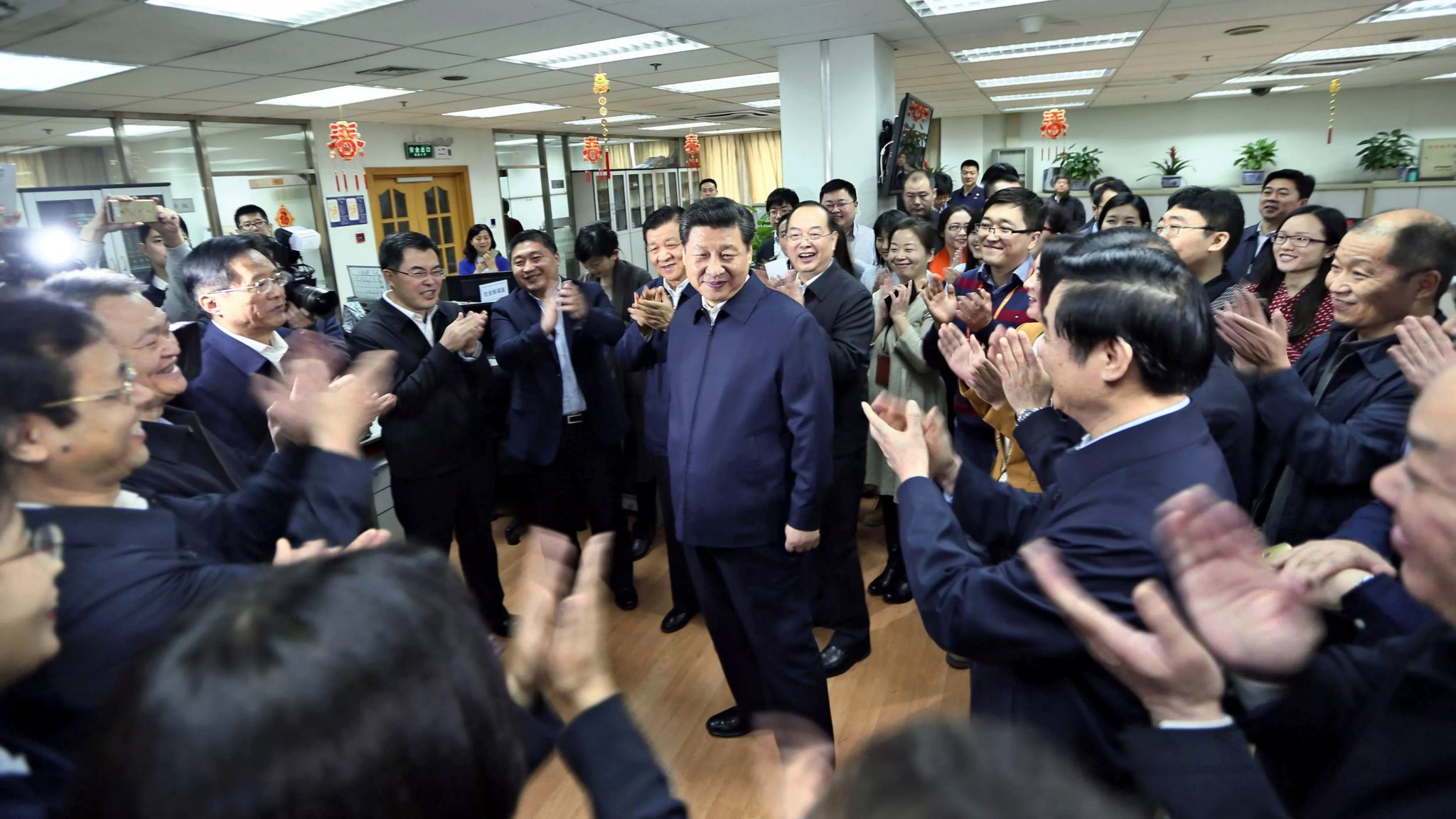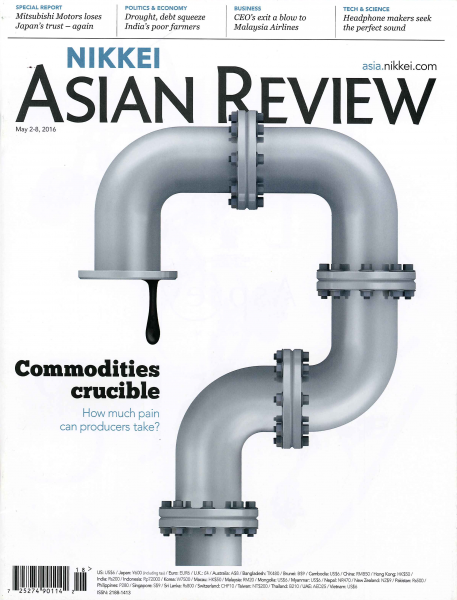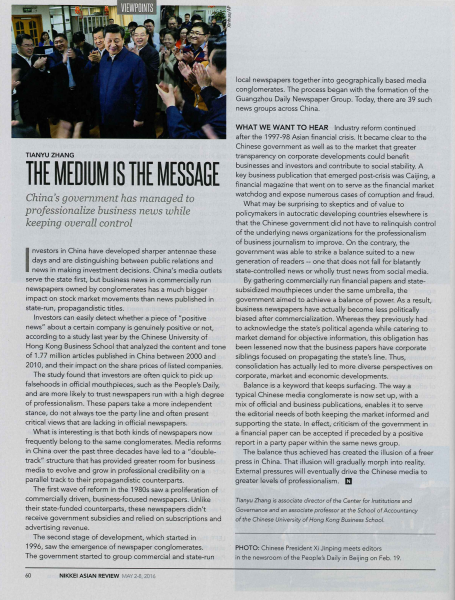Chinese Media Consolidation Fosters Diversity of Corporate News

The first-ever research looking into the consequences of media reforms in China reveals that business newspapers have become less politically biased after commercialization. Find out more in a feature article published in Nikkei Asian Review by Prof. Tianyu Zhang.
As a result of a successful media campaign conducted by The Chinese University of Hong Kong (CUHK) Business School’s Marketing and Communications Office, an article based on the first-ever study of the role of media reform in Mainland China’s business news has recently been published in Nikkei Asian Review. The article was contributed by Prof. Tianyu Zhang, Associate Professor of School of Accountancy and Associate Director of Centre for Institutions and Governance at The Chinese University of Hong Kong (CUHK) Business School, upon the invitation of the prestigious business publication.
Prof. Zhang originally penned a working paper titled “Political Bias of Corporate News in China: Role of Commercialisation and Conglomeration Reforms,” in collaboration with T.J. Wong, Choh-Ming Li Professor of Accountancy and Director of Centre for Institutions and Governance at CUHK Business School, as well as Joseph D. Piotroski, Associate Professor of Accounting at the Stanford Graduate School of Business.
This paper was featured on the School’s China Business Knowledge (CBK) website as a feature article titled “The Long Road to Diversifying Chinese Media.” After the Marketing and Communications Office distributed the article to more than 922 journalists/9964 distribution points in the United States and over 20 countries in Asia Pacific, it has been widely picked up by the media around the world, with 274 clippings generated so far. Publications that have picked up the story include Bloomberg News, Yahoo! Finance, Sina Hong Kong and more.
The campaign has also successfully drawn media attention on research conducted at CUHK Business School. One of the positive media responses came from Nikkei Asian Review, an English-language business journal owned and run by the Japanese media group, Nikkei Inc. It has invited Prof. Zhang to contribute an article based on his research paper.
In the article, Prof. Zhang states that investors are often quick to pick up falsehood in official mouthpieces, such as The People’s Daily, and are more likely to trust newspapers run with a high degree of professionalism. These papers take a more independent stance, do not always toe the party line and often present critical views that are lacking in official newspapers.
“The way a typical Chinese media conglomerate is now set up, with a mix of official and business publications, enables it to serve the editorial needs of both keeping the market informed and supporting the state,” Prof. Zhang writes in his article. “In effect, criticism of the government in a financial paper can be accepted if preceded by a positive report in a party paper within the same news group. So in the end, the reports balance out.”
In the old days, if financial papers did not cooperate with the government, they would be in trouble. Today, when commercially run papers coexist alongside party papers, balance can be realized on a group level,” adds Prof. Zhang… Read More (PDF)
A slightly abridged version of this article was also reprinted in Nikkei Asian Review‘s print edition published on 28 April, 2016. Please click on the images below to read the article.
Source: Nikkei Asian Review
Date published: 12 April, 2016
Photo: Xinhua/AP



